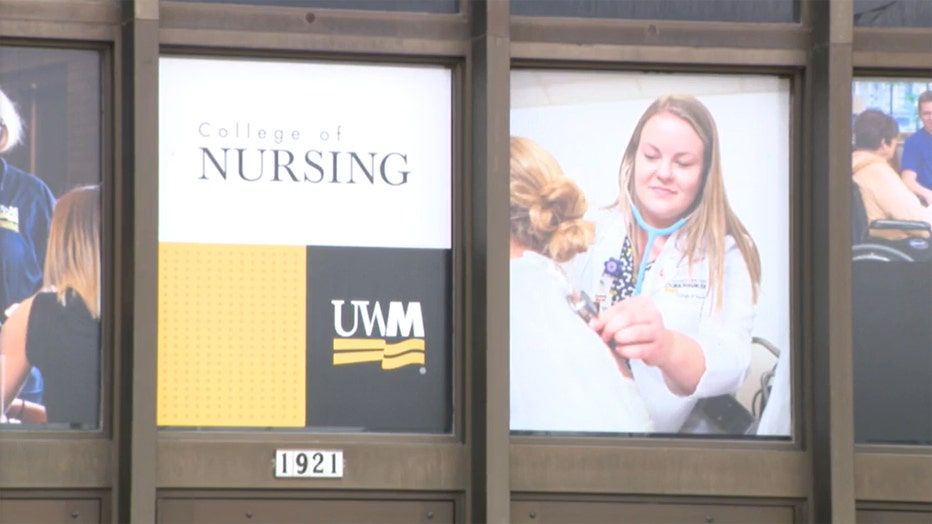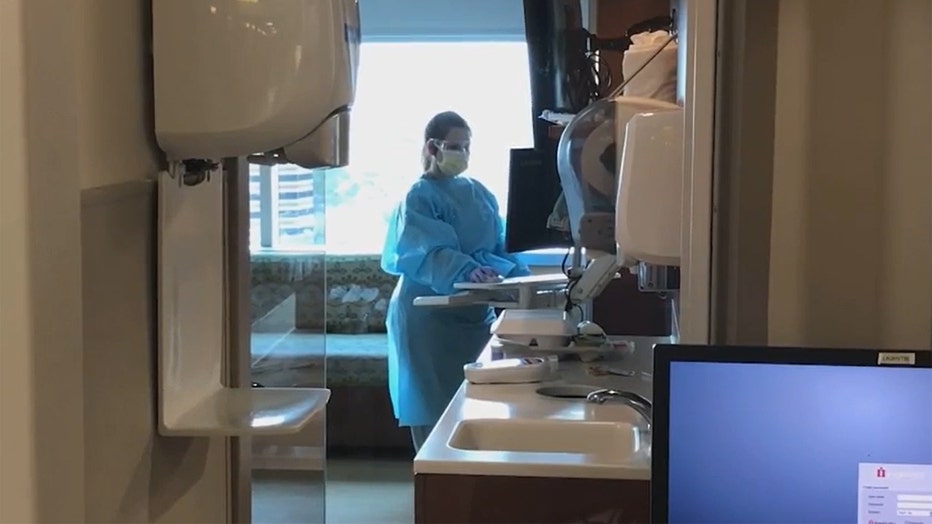UWM sexual assault nurse training addresses need: 'Shortage is here'
UWM sexual assault nurse training addresses need
The University of Wisconsin-Milwaukee launched a new program giving nurses specialized training to help patients who have experienced sexual assault.
MILWAUKEE - The U.S. Centers for Disease Control and Prevention said sexual assault impacts more than half of all women and nearly one third of all men.
There's also a shortage of nurses specially trained to respond. That's a big reason why the University of Wisconsin-Milwaukee launched a new program Saturday, April 22 – giving nurses specialized training to help patients who have experienced sexual assault.
"We believe that all nurses should be trained in trauma-informed care," said Jacqueline Callari Robinson, a UWM doctoral student and project research assistant.
SIGN UP TODAY: Get daily headlines, breaking news emails from FOX6 News
If there is one thing many nurses have in common, it's that they care. But not all nurses have specialized training in offering certain types of care.
"I’m passionate," Callari Robinson said. "As nurses, we will see survivors of violence."

UWM College of Nursing
It's not just what nurses will see, but how they listen and respond that can be critical.
"The patients are magnificent, and their voices should be heard," said Callari Robinson. "That initial contact is important. The nurses are going to learn from the experts in the field."
The new UWM program will prepare nurses to become sexual assault nurse examiners who can work with people who have experience sexual assault and conduct a forensic exam.
"The shortage is here. We’ve seen an increase in sexual assault cases," said Peninnah Kako, UWM College of Nursing associate professor and project director. "We know that they are actually highly underreported."
FREE DOWNLOAD: Get breaking news alerts in the FOX6 News app for iOS or Android.
UWM said Wisconsin has fewer than 100 sexual assault nurse examiners, and the program can help cultivate change.
"Right from the beginning we are talking to the nurses about trauma-informed care," Callari Robinson said.
The program puts a focus on providing care for the state's most vulnerable communities.
"That includes people who are Black, brown, American Indians and those in rural areas who usually don’t receive care," said Kako.

It also teaches more than caring for patients.
"Not only the survivors of sexual assault, but the nurses themselves. When they’re taking care of this population they can be traumatized, so we are really encouraging self-care, self-reflection," Kako said.
The program's goal it to prepare 10 nurses this first year to earn certifications as sexual assault nurse examiners – and 40 next year. Staff behind the project said they have already had so much interest, they've had to turn nurses away this year.
More information on the program can be found here.

